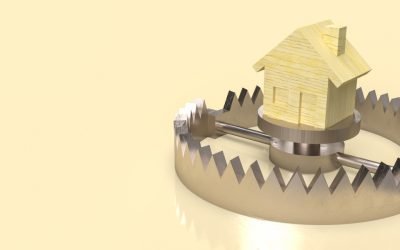Imagine you’ve just clinched a lease agreement for your dream office space. As you settle in, you relish the freedom and potential it brings. But the complexities of lease compliance can quickly turn that dream into a burden if you’re not careful.
You need to stay on top of every detail, from the fine print in your contract to the changing legal requirements. Establishing robust monitoring systems and conducting regular lease audits will keep you ahead of the game.
Maintaining accurate documentation is your safety net, ensuring that you can prove your compliance at any turn. And don’t underestimate the power of clear communication with your landlord; it’s the cornerstone of a hassle-free leasing experience.
By staying vigilant and organized, you’ll navigate lease compliance with ease, preserving the liberty your new space was meant to provide.
Key Takeaways
- Understanding lease compliance is crucial to avoid breaching lease terms and facing potential consequences.
- Implementing robust monitoring systems can help ensure timely compliance with payment deadlines and maintenance duties.
- Regular lease audits can identify and address any discrepancies or issues before they escalate into legal disputes.
- Accurate documentation management is essential for maintaining the integrity of lease agreements and facilitating streamlined operations.
Understanding Lease Compliance
In managing your lease agreements, it’s essential to grasp the specific obligations and standards that constitute lease compliance. You’re responsible for adhering to the terms, which often include payment deadlines, use restrictions, and maintenance duties. Precision in understanding each clause prevents breaches that could lead to costly penalties or legal disputes.
Analyze the lease language carefully; terms like ‘reasonable wear and tear’ or ‘substantial compliance’ have nuanced interpretations that could impact your freedom to operate as you see fit. Ensure you’re clear on renewal conditions and termination rights, as these will affect your long-term plans.
Robust Monitoring Systems
While you’re diligently adhering to your lease terms, it’s crucial that you establish a robust monitoring system to track compliance and deadlines. This system enables you to remain vigilant and proactive, ensuring you don’t inadvertently breach your lease obligations. Consider these key components for effective monitoring:
- Automated alert mechanisms for upcoming critical dates
- Detailed tracking of lease-related expenditures
- Comprehensive documentation of maintenance and repair records
- Regular updates to reflect any changes in lease terms or regulations
By integrating these elements, you create a safeguard against non-compliance. This approach not only helps protect your interests but also empowers you to navigate lease complexities with confidence.
As you refine your monitoring practices, you should naturally progress to conducting regular lease audits, the next vital step in lease management.
Regular Lease Audits
As you implement robust monitoring, don’t overlook the importance of conducting regular lease audits to ensure full compliance with your agreements.
These systematic reviews are critical in identifying discrepancies between your records and the actual terms, ensuring that you’re not inadvertently breaching your lease.
Scrutinize payment histories, maintenance records, and other obligations with a fine-tooth comb. This precision safeguards your liberty to operate without the constraints of unforeseen penalties or legal disputes that can arise from non-compliance.
Regular audits also serve as a preemptive measure, allowing you to address issues before they balloon into larger problems. They’re a strategic tool, pivotal in maintaining the integrity of your lease agreements. With your audit procedures fine-tuned, you’ll seamlessly transition into the realm of accurate documentation management.
Accurate Documentation Management
You should always maintain meticulous records of your lease agreements to prevent compliance slip-ups. Proper documentation is the bedrock of lease management, ensuring you have the freedom to oversee your agreements without the fear of discrepancies.
Here’s what you need to keep track of:
- All lease agreements, amendments, and renewals
- Correspondence regarding lease negotiations and terms
- Detailed records of lease payments and financial obligations
- Documentation of maintenance, repairs, and other lease-related activities
Each record must be accurate, current, and readily accessible for analysis and reporting. Precise documentation management not only safeguards against non-compliance but also streamlines your operations, empowering you to act swiftly and confidently.
Now, let’s pivot to how clear communication protocols complement meticulous record-keeping.
Clear Communication Protocols
To complement your meticulous record-keeping, establish straightforward communication protocols that ensure all parties are on the same page regarding lease obligations.
You’ll want to define clear channels through which tenants, property managers, and owners can communicate. This could include specifying preferred methods such as email for formal requests or a dedicated phone line for urgent issues.
Ensure there’s a documented process for addressing concerns or questions about the lease terms. Designate individuals responsible for responding to inquiries, and set expected time frames for replies. This doesn’t just foster transparency; it also minimizes misunderstandings that could lead to non-compliance.
Frequently Asked Questions
How Can Renegotiating Lease Terms Proactively Help in Avoiding Compliance Pitfalls?
By proactively renegotiating your lease, you’ll anticipate changes and adapt terms, reducing the 58% chance of non-compliance fines. It’s a strategic move to secure your operational freedom and financial precision.
What Are the Common Consequences for Businesses That Fail to Comply With Lease Agreements?
If you fail to comply with lease agreements, you’ll likely face hefty fines, legal disputes, and potential eviction, which can severely limit your business’s operational freedom and long-term financial health.
How Do Changes in Property Management or Ownership Affect Lease Compliance Responsibilities?
When property management or ownership changes, you must scrutinize the new terms as they can alter your lease obligations, potentially affecting your operational liberties and necessitating careful review to maintain compliance.
Can Technology Advancements Like AI and BlockchAIn Play a Role in Improving Lease Compliance, and if So, How?
You can leverage AI and blockchain to enhance lease compliance by automating record-keeping and ensuring transparent, tamper-proof transactions, thereby granting you greater freedom from manual oversight and potential human error.
What Are the Best Practices for Training Employees on Lease Compliance to Ensure Everyone in the Organization Understands Their Role?
To ensure you grasp your role in lease compliance, engage in regular, comprehensive training sessions that are interactive and provide real-world scenarios. Stay updated on legal changes to maintain your freedom from compliance issues.
- Rent-to-Rent Schemes: Hidden Dangers Lurk - July 6, 2024
- How to Sell Your House Fast in Kent - July 5, 2024
- 7 Tips to Sell Your House Fast - July 4, 2024


